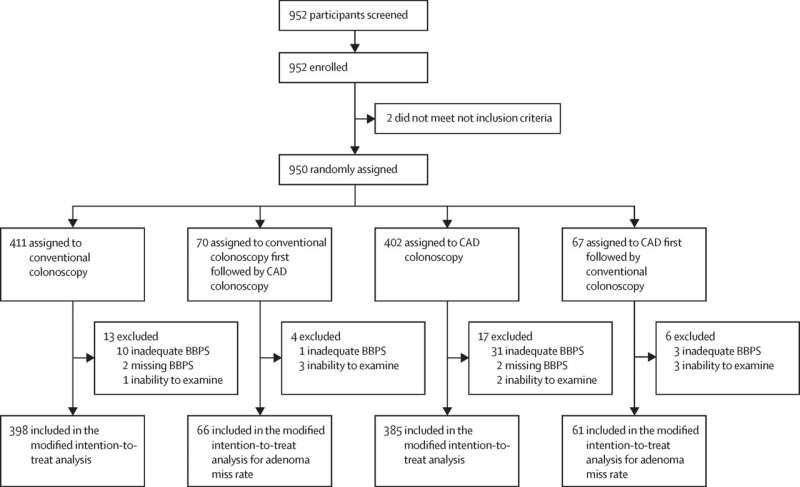This article has been reviewed according to Science X's editorial process and policies. Editors have highlighted the following attributes while ensuring the content's credibility:
fact-checked
trusted source
proofread
Study finds AI-assisted polyp detection system significantly improves colonoscopy

Annually, over 100,000 people in the Netherlands undergo a colonoscopy, an endoscopy of the colon. During this procedure, a doctor uses a camera to search for colorectal cancer and polyps, protrusions from the colon wall that can be precursors to colorectal cancer. Previous studies have shown that the more polyps a doctor finds and removes, the lower the likelihood of developing colorectal cancer later on.
Now, it appears that AI can significantly aid in this process. A doctor finds nearly forty percent more polyps when a smart computer assists in examining the camera images in the colon. "A doctor can miss polyps because they are just briefly in the image, or the attention is focused on another spot," says medical researcher Michiel Maas. "But a computer examines every pixel in the image and is alert every millisecond. That provides significant added value."
This added value was demonstrated in a study involving almost 1,000 patients conducted in 10 hospitals in different countries. Participants underwent a colonoscopy because they qualified for colorectal cancer screening or had previous polyps. They received either the standard colon examination or the examination where the computer live-monitored. The computer placed a purple square in the image of an area that looked suspicious, drawing the doctor's attention for closer examination.
Although the computer helped detect and remove more polyps, the colonoscopy with digital assistance did not take much time. Additionally, the new procedure did not result in a higher percentage of false positives, i.e., tissue that was removed but later found non-threatening during analysis at the Pathology department. The additionally removed polyps were just as likely to be of a dangerous type as the polyps removed during a standard examination.
The smart computer was developed by the company Magentiq Eye LTD. They trained the software to recognize abnormalities using thousands of photos and videos of colonoscopies from around the world. The system is now commercially available but is still limited in use. Maas says, "This system costs money, and reimbursement for medical examinations with AI assistance is still in the development phase."
In subsequent studies, researchers will investigate whether the computer can also determine the danger level of a polyp based on its visual characteristics and size. Professor and Gastroenterologist Peter Siersema says, "If we can determine that during the examination, we can leave harmless polyps in place. You then don't need to analyze them in Pathology. Ultimately, this reduces the risk of complications and costs."
The paper is published in The Lancet Digital Health journal.
More information: Michiel H J Maas et al, A computer-aided polyp detection system in screening and surveillance colonoscopy: an international, multicentre, randomised, tandem trial, The Lancet Digital Health (2024). DOI: 10.1016/S2589-7500(23)00242-X



















